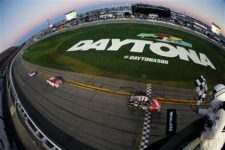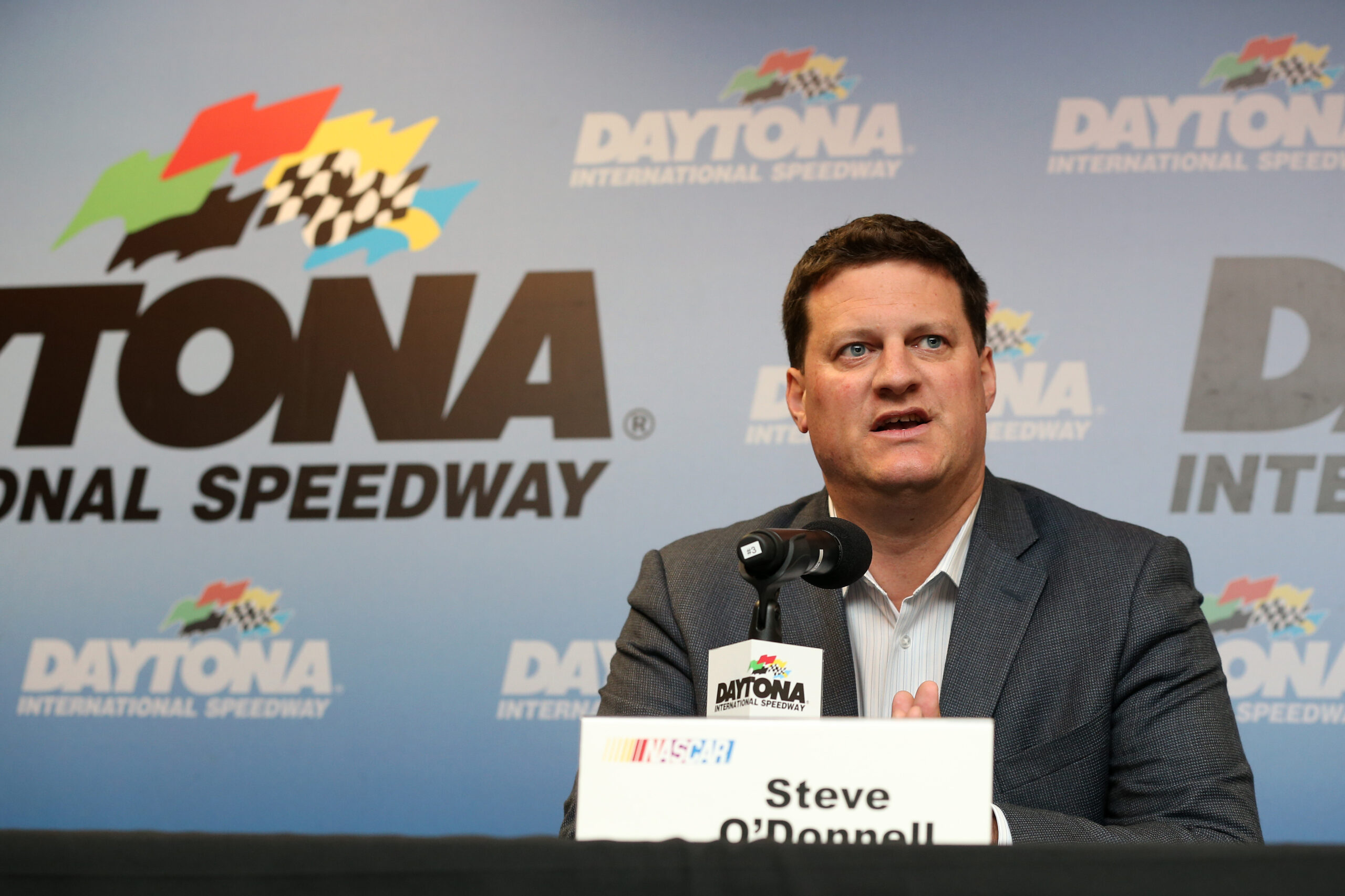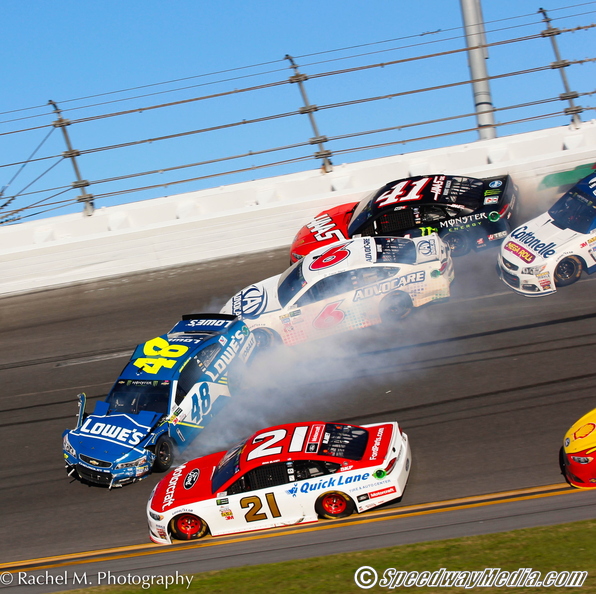Undoubtedly, this year’s edition of Speedweeks had everything a race fan could ask for. There were Cinderella stories, with Kaz Grala the titular belle of the ball Friday night when he won a wild Camping World Truck Series season opener. There were underdog stories, as Ryan Reed showed a level of maturity behind the wheel he only recently came into by running a near perfect race and winning Saturday’s XFINITY Series season-opener. Sunday’s Daytona 500 was all about new beginnings, with a new series title sponsor in Monster Energy, new formats in both points and racing, and the return of Dale Earnhardt Jr. following a lengthy hiatus from behind the wheel.
At the end of it all, Kurt Busch pulled his battered and beaten Stewart-Haas Ford into Victory Lane, turning over another leaf in his already storied career. Competitors and fans alike were quick to congratulate Busch on his win in his 16th attempt in the Great American Race.
Couldn’t it have been left at that?
An article published by USA Today columnist Brant James stresses that while the win was hard-earned by Busch, his win in the 500 wasn’t what NASCAR needed, especially considering declining attendance, sponsorship issues, and a scathing article recently published by the Wall Street Journal. James goes on to reiterate that it would have been better if Kyle Larson had won after leading late, or if polesitter Chase Elliott had been able to hang on to the lead. But definitely not Busch.
What’s wrong with that assessment? Everything.
First, to address the idea of Larson, Elliott, or even runner-up Ryan Blaney taking the checkered instead of Busch. Had they done so, great. Excellent. It would have been hard-fought and earned. It would have been a huge boost to their individual careers and NASCAR would have undoubtedly had a field day. Those drivers are extremely talented and the future of our sport, with plenty of trophies, are waiting to be claimed by them.
But they didn’t win. They weren’t the fortunate ones to cross under that checkered flag first and claim the trophy. It was the No. 41 Ford of Busch that did that. Furthermore, James’s assessment essentially claims that those drivers have already achieved larger-than-life status in the sport. James puts their status as larger than the 500, with the race itself nothing more than a milestone to be achieved in the sport. But, if James truly knew the sport, he would understand that no driver, male or female, is larger than the Daytona 500. Not event Dale Earnhardt Sr., who struggled mightily to win the event.
Moving on to his assessment of Busch’s win in the 500, it’s easy to assume Busch has already reached the pinnacle of the sport because he has. Thirteen years ago, as a matter of fact, when he won the 2004 Cup Series championship. Going into Sunday’s race he had already won 28 races on various types of speedways, not to mention the 2011 edition of Daytona’s Clash event, a qualifying race later that week, as well as the 2010 All-Star event at Charlotte Motor Speedway. He has wins in both trucks and XFINITY. He’s raced in the Indianapolis 500. He’s driven a rally car. He’s even driven an NHRA Pro Stock Dodge at Gainesville in 2011. Busch is a wheelman who is no stranger to success. So of course, what’s a win in the 500 supposed to mean to a guy with his record?
Everything. It wasn’t that long ago that Busch was at the bottom of the sport.
Here’s a guy who started out with a bright star at Roush Racing (now Roush-Fenway), winning 14 races in his No. 97 Ford as well as the ’04 championship. However, with his temper came repercussions; a well-publicized feud with one of NASCAR’s veterans in Jimmy Spencer that ended with a broken nose on Busch’s part and a suspension following a run-in with the law in Arizona.
A transfer to Penske Racing didn’t improve his temper much. Sure, there was success. But there were also repeated profanity-filled tirades over the radio as Busch berated his crew, competitors and NASCAR itself. At Richmond in September 2011, Busch traded spins with his then-nemesis Jimmie Johnson, had to be restrained after exchanging words with a journalist, then ripped up another journalist’s notes in the media center. Two weeks later at Loudon, he berated an ESPN journalist after his car didn’t pass pre-race inspection. At the season finale in Homestead, Busch launched into another tirade towards ESPN reporter Dr. Jerry Punch. This tirade was put on YouTube, and not long after he and Penske split, with Busch going to a second-rate team in Phoenix Racing, where his struggles began in earnest.
Radio tirades. A spat with Ryan Newman’s crew at Darlington. Another suspension after berating journalist Bob Pockrass at Dover. Weekly struggles in sub-par equipment, offset with only a ninth-place at Fontana and a third-place at Sonoma to show for his efforts. The No. 51 team had reached the bottom with a championship-caliber driver. This was in stark contrast to the beginning of the 2012 season when many claimed Busch was going to put Phoenix Racing on the map.
A move to the No. 78 Furniture Row team in 2013 showed promise of a comeback, but no wins. 2014 brought a win and a playoff appearance, but Busch struggled getting acclimated with his new Stewart-Haas Racing team and was eliminated in the first round of eliminations that Fall.
Then 2015 came around and saw allegations of assault from Busch’s ex-girlfriend Patricia Driscoll. These allegations led to an indefinite suspension of Busch, with many under the impression that this was it; Busch was done for in NASCAR.

While this was going on, NASCAR was moving on without him, kicking its schedule into high gear. But when it came out that Busch wasn’t going to be charged for assault, NASCAR was quick to reinstate him, complete with a playoff waiver so he could contend for a championship. Busch wrapped up the ’15 season with two wins and an eighth-place in points, topped in ’16 with a seventh-place points finish and a win at Pocono in June.
To top it all off, Busch finally came through Sunday by winning the Daytona 500, the biggest race in all of stock car racing. The crown jewel of NASCAR and Busch completed his road from the bottom to the top by winning the Great American Race.
The Busch America saw in Victory Lane Sunday was the best of both worlds. He was the exuberant kid from Las Vegas we all saw at Roush, but he was also the grizzled vet who bore the weight of a thousand losses and setbacks over the course of the years on his shoulders. Only this time, that weight was completely lifted.
Mr. James says Busch’s win does nothing for NASCAR, that Busch’s win lacks magnitude. On the contrary; for someone like Busch, who has experienced the highest of highs and the lowest of lows, this was the culmination of a long and painful road back to the top. That’s what Busch’s win means for NASCAR; the ultimate comeback story.









